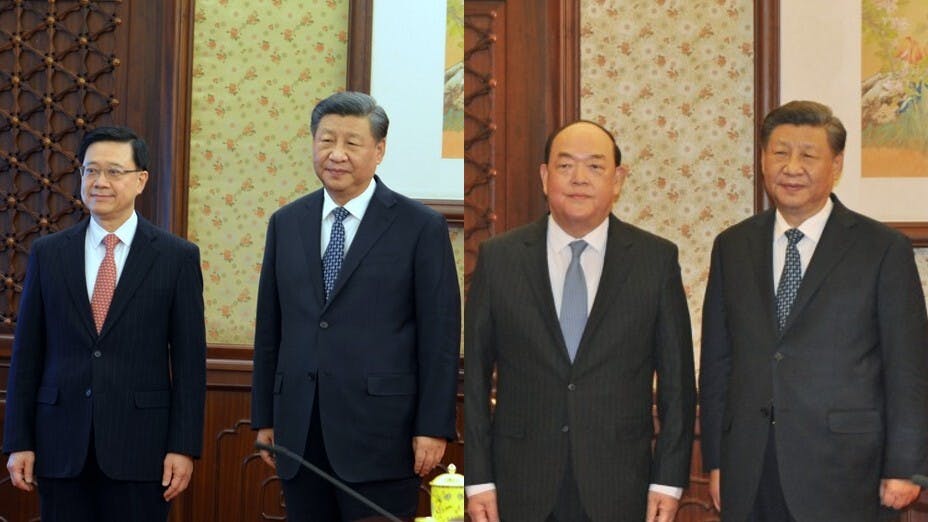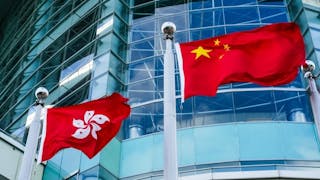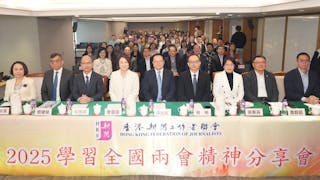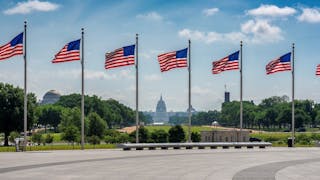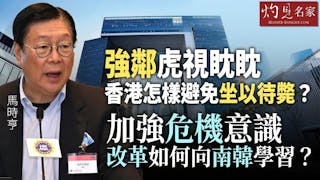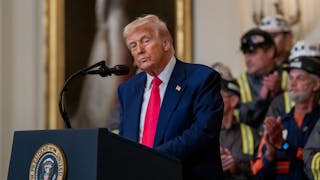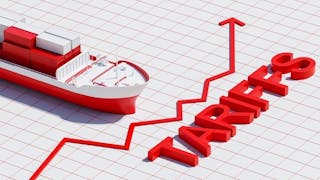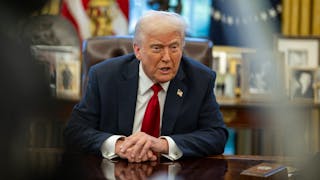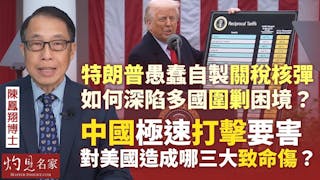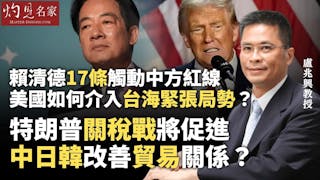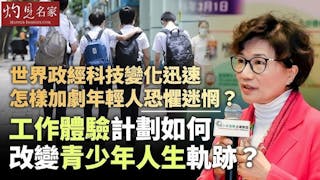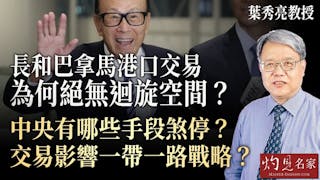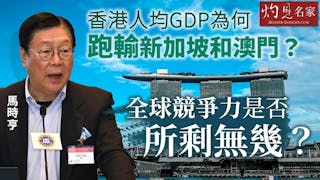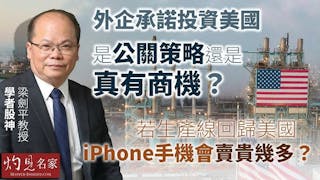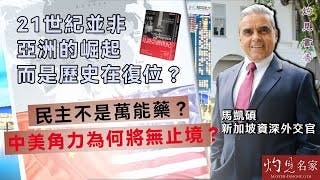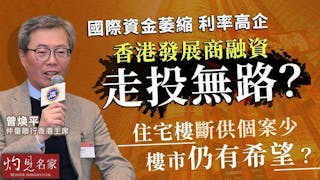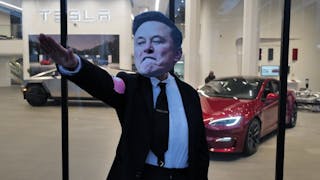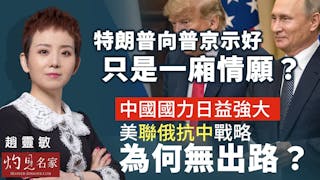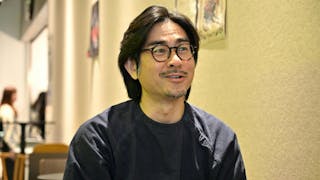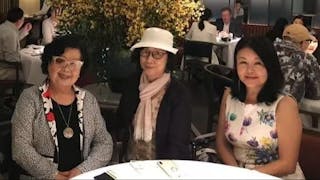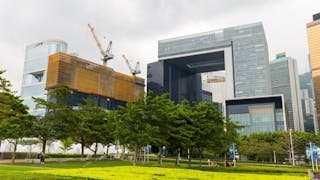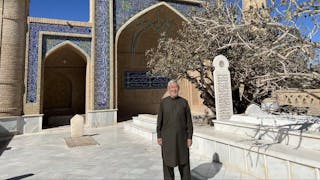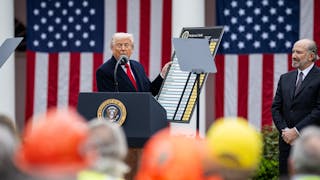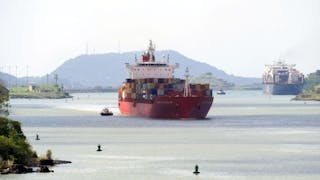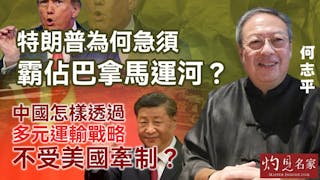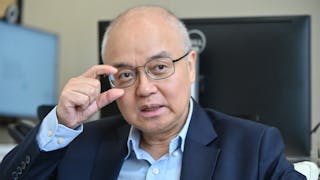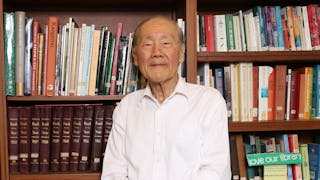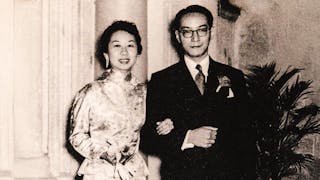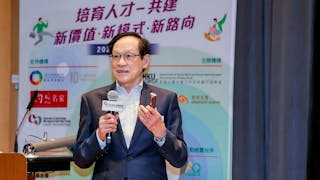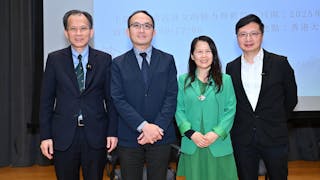香港和澳門的特區行政長官李家超及賀一誠的赴京述職表明,在中央領導肯定他們工作的同時,亦期望兩地為「中華民族的偉大復興」這個過程的戰略領域更加努力作出貢獻。
中央期望香港努力鞏固國際地位
12月22日,李家超首次與國務院總理李克強會面,李克強充分肯定李家超及其政府團隊的工作,並補充說中央全力支持特區政府依法施政,希望李家超能團結香港市民。李克強讚揚李家超說,行政長官的工作可以給廣大香港市民帶來福祉。陪同李克強會見李家超的還有國務院副總理韓正、港澳辦主任夏寶龍、中聯辦主任駱惠寧。
李克強指出,香港的命運與國家的命運密切相連,希望特區政府帶領香港市民,按照國家所需,在融入國家發展大局的過程中充分發揮香港獨特優勢,不斷鞏固和提升香港國際金融、貿易、航運中心地位。
解讀李克強的言論,我們可以發現,雖然李克強對李家超大加讚賞,對他的辛勤工作給予高度權威的、合法的認可,但仍然期望香港在鞏固其國際金融、貨幣 、貿易、航運中心地位方面做得更多。
內地傳媒報道了一件香港沒有報道的事情,即李克強敦促「有關方面要抓緊溝通協調,推動香港與內地人員往來逐步恢復正常」。在李家超述職前,曾有傳聞稱深港邊境最早將於1月3日開放通關。
國務院總理的表態說明,此事將留待香港特區政府與廣東、深圳政府之間進行詳細討論──這一消息在李家超12月24日午返回香港時得到證實。有中央政府發出的積極訊號和正式同意,深港邊境開放通關是遲早的事。12月24日下午稍晚時,李家超被傳媒體問到通關日期時,他表示,目標暫定在1月中之前。
澳門經濟多元化政策備受關注
12月22日同一天,李克強還會見了澳門行政長官賀一誠。李總理肯定了賀一誠在制定和實施一系列「務實有為」的工作,包括一系列穩經濟、保就業、惠民生的措施,維護了澳門的穩定發展局面。 然而讚揚之後是一些建議,一如李克強評價李家超的工作。 李克強補充說,澳門應「繼續全面準確、堅定不移地貫徹一國兩制、澳人治澳、高度自治的方針」,依法施政。 此外,李克強希望賀一誠和他的政府團隊帶領澳門「克服困難,更好融入國家發展大局,積極推進橫琴粵澳深度合作區建設,推動經濟發展,改善民生」。
李克強對澳門的期待很具體,尤其是澳門如何結合橫琴融入國家發展大局,就像香港更深入地融入中國內地一樣。 最重要的是,澳門與橫琴的合作,必須由澳門特區政府與橫琴及廣東省政府合作來加速和具體化。 言下之意,李克強總理希望澳門在經濟多元化方面做得更好,但沒有明確提及澳門的博彩業。顯然,李總理希望看到澳門採取具體措施實現經濟多元化。
習近平賦予二人高度認可
12月23日,兩位行政長官會見國家主席習近平。習主席會見賀一誠時,授予他新的權威和合法性,稱讚他「穩健施政,真抓實干,保持了社會大局穩定,認真學習宣傳貫徹中共二十大精神,穩妥處理澳門博彩法律修訂和新一輪博彩經營權競投,紥實推進橫琴粵澳深度合作區建設」。 習主席強調,中央將「全面準確、堅定不移貫徹一國兩制方針,全力支持澳門特別行政區充分發揮自身優勢和特點,奮力開創具有澳門特色的一國兩制實踐新局面」。最重要的是,習主席期待澳門在中國建設「全面社會主義現代化強國」的進程中作出更大貢獻。
習主席會見李家超時,對李家超讚不絕口,說他勇敢務實地領導新政府,團結社會各界,堅決維護國家安全,大力恢復經濟活力, 積極回應民眾關切。 此外,李家超認真學習宣傳貫徹中共二十大精神。 總之,中央對李家超的工作給予充分肯定。
習主席強調,中共二十大對新時代新征程黨和國家各項事業發展作出全面部署。在此背景下,一國兩制是中國特色社會主義的偉大創舉,是香港、澳門回歸後保持長期繁榮穩定的最佳制度安排。習近平表示,中央將全力支持特區政府依法施政,全力支持香港充分發揮獨特優勢,廣泛開展國際合作,更好融入國家發展大局,在中華民族偉大復興的歷史進程中作出新的更大貢獻。
分析習主席的評語,我們發現他對兩位行政長官大加讚賞、賦予李家超和賀一誠高度的權威、合法性和認可。 然而,習主席希望香港和澳門認識到一國兩制在中國社會主義發展中的重要性,從而為中華民族的偉大復興興進程作出更多貢獻。弦外之意,習主席敦促兩位行政長官打造各自獨特的港澳版一國兩制,暗示中央下一個關鍵步驟,是向台灣民眾推廣台灣模式的一國兩制。
兩人述職的政治意義
總而言之,李家超和賀一誠到北京的述職具有重要政治意義。雖然香港有望從現在開始由亂到治,但國務院總理李克強期望香港在鞏固其作為國際金融、貨幣、貿易、航運中心地位方面做得更多的工作──經濟方面李家超政府還要繼續努力。就在李家超上京述職前幾天,特區政府公布了《青年發展藍圖》和《基層醫療健康藍圖》──明確的步驟確保行政長官在12月22日向北京述職之前做了大量工作。然而,李克強傾向強調香港在經濟方面的優勢,而習近平則提到中央支持香港擴大對外經濟關係──顯示北京支持香港加入更多國際經濟組織。
對於澳門,李克強和習近平都沒有過多提及澳門的博彩業,但都稱讚了澳門在處理博彩特許經營權方面的努力。然而,雙方都希望澳門在與橫琴的合作中做更多的工作──這意味着澳門必須擺脫對賭場資本主義的過度依賴,轉向經濟適度多元化。如果是這樣,賀一誠治下的澳門必須在經濟適度多元化的過程中更加努力,同時與橫琴更深更快地融合。另一方面,預計香港將與大灣區和內地融合,同時保持其國際金融、貨幣 、貿易、航運中心地位──這些領域在李家超政府首五個月並沒有表現出太多努力。兩位行政長官的上京述職表明,香港和澳門的發展藍圖現在直接向北京的中央領導層負責。
Observations on the Duty Visit of Hong Kong and Macau Chief Executives to Beijing
The duty visits of the two Chief Executives of Hong Kong and Macau, John Lee and Ho Iat Seng, to Beijing shows that while the central leaders affirm their work, the two places are expected to work harder in strategic areas during the process of making more contributions to the Chinese renaissance.
On December 22, John Lee first met the Chinese Premier Li Keqiang, who fully affirmed the work of Lee and his government team, who adds that the center fully supports the local government’s policymaking, and who hopes that Lee can solidify the people of Hong Kong. Li praised Lee by saying that the Chief Executive’s work can bring about the people’s well-being. Accompanying Li’s meeting with John Lee were the Chinese Vice Premier Han Zheng, director of Hong Kong Macau Affairs Office Xia Baolong, and Liaison Office director Luo Huining.
Li Keqiang pointed to the intertwined relations between Hong Kong and its motherland, and he hoped that John Lee’s government would lead the people of Hong Kong to integrate into the Chinese nation as a national strategy while fully utilizing the city’s unique strengths, especially in the areas of consolidating its status as an international financial, monetary, trade, aviation and shipping centers.
Decoding Li’s remarks, we can find that while the Chinese Premier heaped praise on John Lee and conferred a high degree of authority, legitimacy and recognition of his diligent work, Hong Kong is expected to do more in buttressing its status as an international financial, monetary, trade, aviation and shipping centers.
The mainland media covered one matter unreported in Hong Kong, namely Premier Li asked the Hong Kong government to discuss with Shenzhen and Guangdong authorities on an orderly process of achieving the goal of opening the border with the Hong Kong special administrative region. Before John Lee’s visit to Beijing, there were rumors that the border between Hong Kong and Shenzhen would be opened as early as January 3.
The message from the Chinese Premier showed that the matter would be left to detailed discussions between Hong Kong, Shenzhen and Guangdong – a message that was confirmed by John Lee when he returned to Hong Kong in the afternoon of December 24. With the positive signal and formal approval from the central government, it will be a matter of time that Hong Kong’s border with Shenzhen would be opened. When asked by the media about the date of opening the border, John Lee said on the late afternoon of December 24 that he set a tentative target around the middle of January.
On the same day of December 22, Li Keqiang also met the Macau Chief Executive Ho Iat Seng. The Premier affirmed the work of Ho in formulating and implementing a series of “decisive measures,” including how to stabilize the economy, protect employment, benefit the people’s livelihood and allow Macau’s stable development. Such praise, however, was followed by some advice, as with how the Chinese Premier commented on the work of John Lee. Li added that Macau should continue to “wholly, accurately and resolutely” implement the “one country, two systems,” the principle of “Macau people ruling Macau,” and the implementation of policies in accordance with the law. Further, the Premier hoped that Ho and his government team will lead Macau to “overcome difficulties, embrace national strategy, actively perform in the cooperation zone with Hengqin, develop the economy and to improve the people’s livelihood.”
Li Keqiang’s expectations on Macau were specific, especially on how Macau should integrate with Hengqin as a national strategy, just like Hong Kong’s deeper integration into the Chinese mainland. Above all, Macau’s cooperation with Hengqin will have to be accelerated and concretized by the Macau government in collaboration with Hengqin and the provincial authorities in Guangdong. By implication, the Chinese Premier expects Macau to do a better job in its economic diversification without explicitly mentioning Macau’s gaming industry. Clearly, the Chinese Premier wants to see Macau to adopt concrete measures to implement economic diversification.
On December 23, the two Chief Executives met President Xi Jinping. During the meeting with Ho Iat Seng, President Xi entrusted Ho with renewed authority and legitimacy by praising him for his “stable governance, pragmatic work, the protection of social stability, the adoption of a learning spirit to study the gist of the 20th Party Congress, the stable management of the Macau gaming law revision and its related franchise bidding, and stable implementation of the Hengqin-Guangdong-Macau Deepening Cooperation Zone.” President Xi emphasized that the central government would “fully, accurately, and resolutely implement the ‘one country, two systems;’ and fully supports Macau to develop its strengths and specialness to create a new scenario of ‘one country, two systems’ with Macau characteristics.” Most importantly, President Xi expects Macau to contribute more to the process of China’s efforts at becoming “a fully socialist, modernized and strong nation.”
When President Xi met John Lee, the former heaped praise on the latter by saying that Lee leads the new government bravely and pragmatically, that he unifies different social sectors, that he resolutely protects national security, that he energetically recovers the economy, and that he responds to the concerns of the public. Moreover, the Chief Executive seriously learns and publicizes the spirit of the 20th Party Congress. In short, the central government fully affirms John Lee’s work.
President Xi added that the 20th Party Congress had made important strategic preparation for the Party and the country’s development. Under this context, the “one country, two systems” is a great innovation of Chinese-style socialism and it is the best arrangement of maintaining the long-term stability and prosperity of the two places. The central government, according to Xi, fully supports the policies of the Hong Kong government, backs up Hong Kong to develop its potential and strengths to engage international cooperation and to integrate with the mainland in a much better way, thereby making contributions to the process of achieving the Chinese renaissance.
Analyzing President Xi’s comments, we find that he heaped praise on the two Chief Executives, conferring upon John Lee and Ho Iat Seng a high degree of authority, legitimacy and recognition. Yet, the President expects both Hong Kong and Macau to contribute more to the process of Chinese renaissance by recognizing the significance of “one country, two systems” in China’s socialist development. Reading between the lines, the Chinese President exhorts the two Chief Executives to craft out their unique Hong Kong and Macau versions of the “one country, two systems,” implying that the central authorities’ next crucial step is to promote the Taiwan model of “one country, two systems” to the people of Taiwan.
In conclusion, the duty visits of John Lee and Ho Iat-seng to Beijing were politically significant. While Hong Kong is expected to change from chaos to emergence from now onwards, the Chinese Premier Li Keqiang expects Hong Kong to do more in buttressing its status as an international financial, monetary, trade, aviation and shipping centers – economic areas in which the John Lee government remains to be improved. Just days prior to John Lee’s visit to Beijing, the Hong Kong government published its developmental plan for youth and improvement blueprint for health care – clearly steps to ensure that the Chief Executive had done much work before he reported to Beijing on December 22. However, Premier Li tended to focus on the economic dimensions of Hong Kong’s strengths, while President Xi mentioned the central support for Hong Kong to expand its external economic relations – an implication that Beijing supports Hong Kong to join more international economic organizations. With regard to Macau, both Premier Li and President Xi did not say much about its gaming industry, but they praised Macau’s efforts at dealing with the gaming franchises. Both, however, expect Macau to do more work in its collaboration with Hengqin – an implication that Macau must move away from its overdependence on casino capitalism to real economic diversification. If so, Macau under Ho Iat-seng must work harder in this process of achieving economic diversification while integrating with Hengqin in a deeper and faster manner. Hong Kong, on the other hand, is expected to both integrate with the Greater Bay Area and the mainland while maintaining its international financial, monetary, trade, aviation and shipping centers – areas that have not shown many efforts in the first five months of the John Lee administration. The duty visits of the two Chief Executives show that Hong Kong and Macau’s developmental blueprints are now directly accountable to the central leadership in Beijing.
原刊於澳門新聞通訊社(MNA)網站,本社獲作者授權轉載。網址:https://www.macaubusiness.com/opinion-observations-on-the-duty-visit-of-hong-kong-and-macau-chief-executives-to-beijing/





